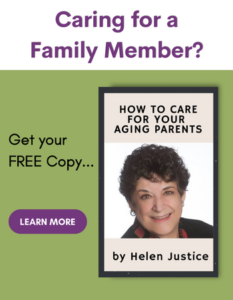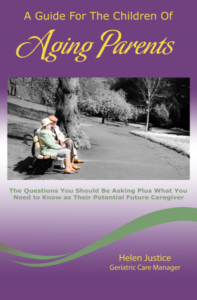Adult Day Care as an Alternative to In-Home Care
When your mother, father or grandparent starts to age, he or she may develop mental or physical problems that prevent them from being left alone. Dementia is the leading cause of loss of cognitive function and leaves your aging family member vulnerable to harming themselves because of the loss of mental faculties. Some physical problems also prevent the person from getting around a lot and provide danger to them when left unattended.
Traditionally, In-Home care has been used to fulfill this need so the functioning member (child or grandchild) can leave the home to participate in their own life. Nurses would come in and sit; thus their title “sitter”. This method, although traditional, has been challenged as causing more damage to the person than good in some cases where their independence has been challenged. The emotional damage to the loved one, may outweigh the positive benefits of having someone watch over them.
Adult daycare is pretty new but seems to be becoming popular to families who want their mom, dad or grandparent (or disabled person) to have a full life for as long as possible. Adult daycare centers are much like daycare for children where they have fun activities, get exposure to nature and being outside, and have friendly and fun interaction with others in their same condition, whether that is handicapped, aging or injured for a time.
When deciding which option to choose for your family member you must use common since and decide which is best for your loved one based on many factors such as affordability, transportation and practicality.
Here is a short checklist to help you decide whether to hire someone to come to your home or their home, to sit with your loved one, or to enroll them in an Adult daycare program.
- Affordability – If cost is the problem, the first thing you should do is start to see if it is financially feasible for your loved one to be enrolled into a daycare as opposed to receiving home care. Insurance may cover a nurse to come in and sit with your loved one in their home or yours, and may not cover any cost of Adult daycare. If money is no issue, then you may want to strongly consider the daycare option but not without the next two items on this checklist.
- Reputation of Nearby Facilities – Elder abuse and abuse of the disabled is on the rise. Even an adult day care center may be staffed with inappropriate people who have tendencies toward anger or impatience. This is a critical area in deciding what type of care your aging parent, disabled child, injured grandparent or other loved one receives. While there is no one single way to project the type of person caring for your loved one is or will be at any time, simply asking questions that spark answers will cause you to feel one way or the other so don’t hesitate to ask.
- Opinion of your Loved One – Simply ask them their opinion, if they have the mental faculty to answer. Often dementia sufferers cannot give you a right answer, although their body language may provide an indication. When you are talking with them, rather than saying “adult daycare” say something like “Would you enjoy going to town and hanging out with some friends your age for the day?”, or “Can we go check out the adult daycare down the road and we will get some lunch?”. Remember inside, your loved one is still a human and is entitled to take part in their own care for as long as possible.
Making these decisions for someone you love is not easy. Deciding to choose adult daycare over in home care is an emotional decision and should be planned out properly so the experience is the best it can be in any given situation. Always have the talk.
Copyright 2017 – Helen Justice GCM – Elder Care Navigator and Advocate – Advanced Wellness GCM, Inc
Known by many as “The Elder Care Navigator”, Helen Justice is a Certified Geriatric Care Manager trained to assist elders and their families with the process of aging with dignity and grace. Her knowledge and experience insures elders obtain quality care and transitional preparation for their future. More important than the financial aspect of aging is the social and emotional component that elder care places on the family. Go to www.advancedwellnessgcm.com for information on no fee seminar.



Stay Up To Date With AWGCM